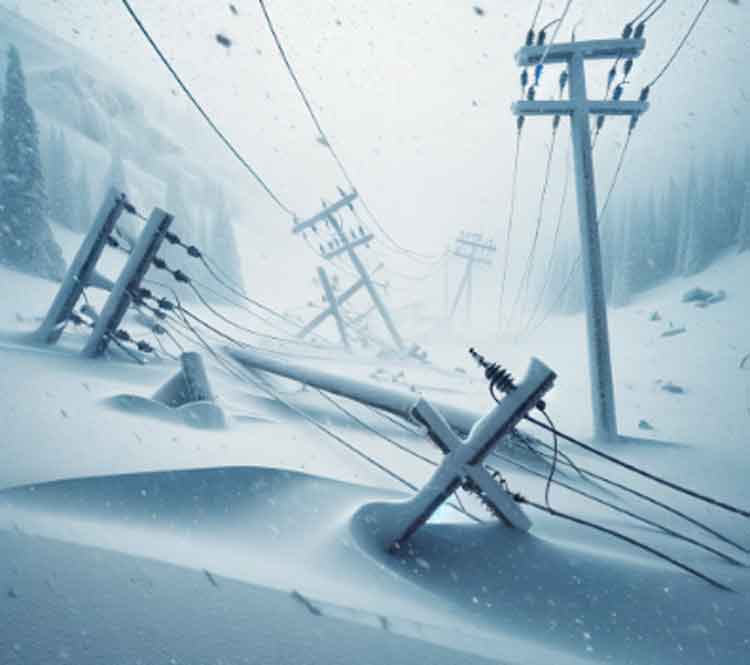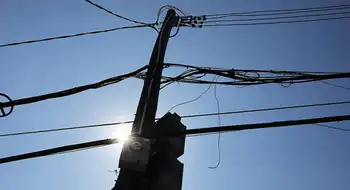Strategy needed to get wave energy rolling
By Westerly News
NFPA 70e Training - Arc Flash
Our customized live online or in‑person group training can be delivered to your staff at your location.

- Live Online
- 6 hours Instructor-led
- Group Training Available
Chris Campbell, executive director of the Ocean Renewable Energy Group, a national organization that serves to coordinate groups researching and investing in ocean energy, is calling on the provincial government to develop a strategy to make wave and tidal energy a reality.
"The problem is, power is too cheap and there are too many choices in B.C.," said Campbell.
He estimates that the cost of producing electricity from wave energy would be approximately $250 to $300 per megawatt.
The problem is, most other sources of electricity produced within the province can be produced for a lot less.
According to the province's Energy Plan, other renewable sources of power such as wind, bioenergy, and run-of-river hydro can all be produced for less than $100 per megawatt.
Even a new large hydro dam would be able to produce electricity for around $60 a megawatt.
The high cost of producing wave energy becomes prohibitive because at the end of the day, Campbell said, there needs to be a market for the product.
Currently BC Hydro has a standing offer program to purchase energy from smaller power projects and also puts out calls for power from larger projects.
The standing offer program purchases electricity for a set price based on location and availability which doesn't come close to the $250 to $300 per MW wave energy would be asking.
Calls for power operate on a competitive basis, taking price into consideration and also require the electricity producing technology to be proven.
While there are numerous Investigative Use Permits held by various companies for swaths of ocean offshore of Ucluelet and Tofino, not one company has yet put any technology in the water.
Campbell said more support from the provincial government would help wave energy get that first project in the water and get the experience needed to eventually bid into a call for power.
Earlier this year, the province released a strategy for bioenergy - electricity produced from waste wood - to target pine-beetle destroyed trees in the interior.
As part of the strategy, the province will seek legislative approval for $25 million in funding to establish a provincial Bioenergy Network to invest more and enable innovation in bioenergy products and technologies.
A new fund for new energy technologies was set up last year by the provincial government, earmarking $25 million to aid technologies that would help solve energy and environmental issues and were not necessarily proven.
Campbell said three wave technology projects requested funding under the $25 million Innovative Clean Energy Fund but none were selected. Bioenergy projects however, were.
"We're very disappointed to see the ICE fund used for bioenergy when there is a bioenergy strategy," said Campbell.
Ida Chong, minister of Technology Trade and Economic Development, is encouraging wave energy projects to bid into the next call for proposals for the fund.
"Experience is needed to drive down the cost," said Campbell. "The longer it takes, the likelihood Scotland will take the lead."
Communities are also actively pursuing a strategy for Ocean Energy with the province.
At this year's Union of BC Municipalities Convention, Campbell River, which is interested in developing tidal energy, has drafted a resolution to work with the province on a strategy for wave and in-stream tidal current technologies to develop and implement power projects.
Ucluelet Mayor Dianne St. Jacques said they are endorsing that resolution.
"We want Ucluelet to be the wave energy capital of Canada," said St. Jacques.
Even without a wave and tidal energy strategy on the horizon, companies are still moving forward.
Presenting to Ucluelet council Tuesday night, Natural Power, an international company specializing in finding the right technology to work with existing waves, reported they are applying for five investigative sites in addition to the four they currently are operating offshore of Ucluelet.
Natural Power will monitor the waves over a long time period and determine which wave energy technologies in existence will work best in the wave conditions Ucluelet has to offer.
They are hopeful more funding will come from the province in the form of the Premier's Technology council which has offered more funding for marine renewables such as wave energy.
Natural Power's Mike Rodgers told council they hope to have pilot projects in the water within the next few years. As for commercial development of those projects, at the current pace, those would still be "five to six years away" he said.











